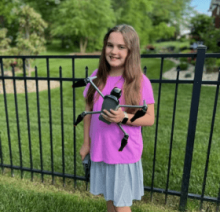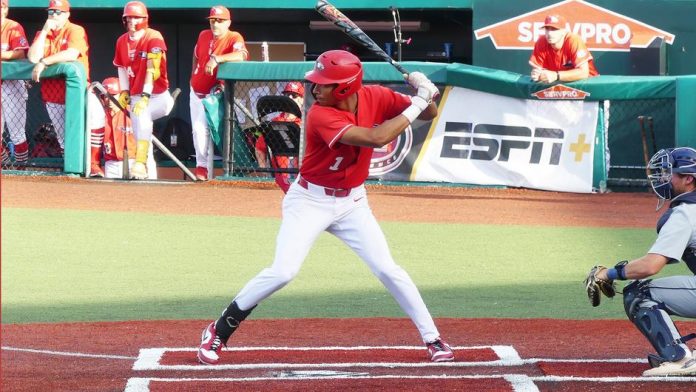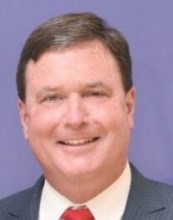the U.S. Environmental Protection Agency announced $25 million for states and territories to invest in clean and safe drinking water. This grant funding will specifically benefit underserved, small and disadvantaged communities by upgrading infrastructure to comply with the Safe Drinking Water Act, reducing exposure to Per- and Polyfluoroalkyl Substances (PFAS), removing sources of lead, and addressing additional local drinking water challenges. The EPA funding announced today advances President Biden’s Investing in America Agenda to help communities make real progress on critical drinking water upgrades.
“Across the country, too many communities struggle to maintain and upgrade drinking water infrastructure that is essential to public health,” said Acting Assistant Administrator for Water Bruno Pigott. “This $25 million in EPA grant funding, along with historic investments from President Biden’s Bipartisan Infrastructure Law, will strengthen our nation’s water infrastructure and help ensure everyone has access to clean and safe drinking water.”
This funding is part of the Biden-Harris Justice40 Initiative, which advances environmental justice and benefits disadvantaged communities by ensuring that federal funding is reaching places that need it most.
EPA’s grant funding is flexible and can support a broad range of projects to help communities address drinking water concerns, from household water quality testing to monitoring for drinking water contaminants, including PFAS. These funds can also be used to identify and replace lead service lines to help achieve President Biden’s goal of removing 100% of lead pipes across the country. Funds may also support efforts to build the technical, financial, and managerial abilities of a water system’s operations and staff. Infrastructure projects—from transmission, distribution, and storage—that support drinking water quality improvements are also eligible for grant funding.
The Small, Underserved, and Disadvantaged Community grant program, established under the Water Infrastructure Improvements for the Nation (WIIN) Act, awards funding to states and territories on a non-competitive basis. EPA awards funding to states based on an allocation formula that includes factors for population below the poverty level, small water systems, and underserved communities. Since 2019, this grant program has allocated over $130 million to states, territories and Tribes. There is a separate allotment to support activities in American Indian and Alaska Native Village communities. For more information, visit the WIIN SUDC Grant website.
FY 2024 Small, Underserved and Disadvantaged Communities (SUDC) Grant Allotments for States and Territories
Based on FY 2024 Appropriations of $25,080,000
| State/Territory | FY 2024 Allotment | State/Territory | FY 2024 Allotment |
| Alabama | $369,000 | Montana | $326,000 |
| Alaska | $571,000 | Nebraska | $284,000 |
| American Samoa | $141,000 | Nevada | $293,000 |
| Arizona | $490,000 | New Hampshire | $259,000 |
| Arkansas | $342,000 | New Jersey | $406,000 |
| California | $1,624,000 | New Mexico | $393,000 |
| Colorado | $462,000 | New York | $1,047,000 |
| Connecticut | $273,000 | North Carolina | $679,000 |
| Delaware | $195,000 | North Dakota | $210,000 |
| District of Columbia | $151,000 | Northern Mariana Islands | $142,000 |
| Florida | $961,000 | Ohio | $609,000 |
| Georgia | $664,000 | Oklahoma | $492,000 |
| Guam | $135,000 | Oregon | $425,000 |
| Hawaii | $170,000 | Pennsylvania | $799,000 |
| Idaho | $316,000 | Puerto Rico | $478,000 |
| Illinois | $702,000 | Rhode Island | $168,000 |
| Indiana | $422,000 | South Carolina | $375,000 |
| Iowa | $348,000 | South Dakota | $240,000 |
| Kansas | $381,000 | Tennessee | $403,000 |
| Kentucky | $340,000 | Texas | $1,821,000 |
| Louisiana | $641,000 | Utah | $291,000 |
| Maine | $238,000 | U.S. Virgin Islands | $138,000 |
| Maryland | $305,000 | Vermont | $210,000 |
| Massachusetts | $348,000 | Virginia | $469,000 |
| Michigan | $650,000 | Washington | $566,000 |
| Minnesota | $382,000 | West Virginia | $315,000 |
| Mississippi | $420,000 | Wisconsin | $439,000 |
| Missouri | $524,000 | Wyoming | $238,000 |












